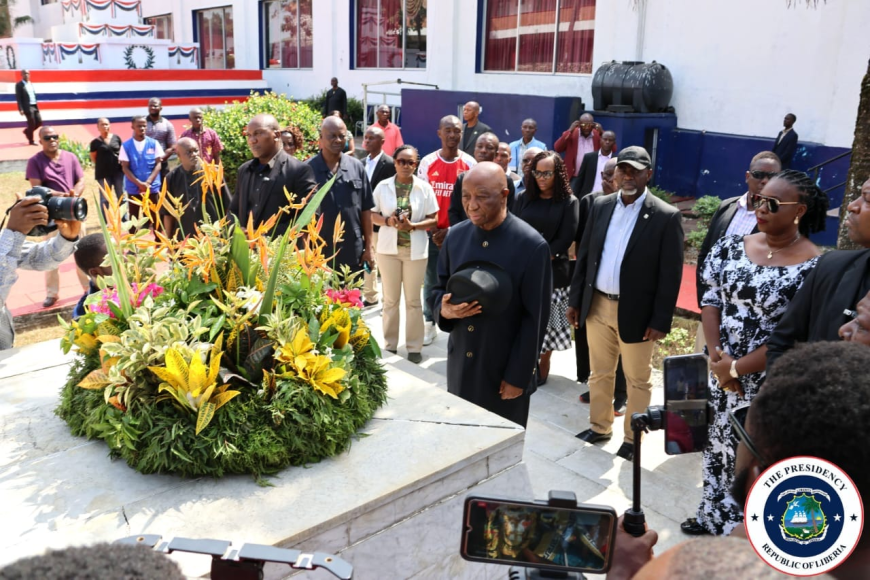Liberia Decoration Day: Honoring Tradition and Sacrifice"

Liberia Decoration Day traces its origins back to the early days of Liberia's founding. Established on July 26, 1847, Liberia became the first African republic to proclaim its independence. However, the journey to freedom was not without its challenges. The settlers, mostly freed slaves from the United States, faced numerous hardships as they established their new homeland.
During this period, many Liberians sacrificed their lives in the struggle for independence and the defense of their fledgling nation. To honor their courage and dedication, Liberia Decorations Day was instituted as a day of remembrance and gratitude.
The significance of Liberia Decoration Day is amplified by the tradition of decorating the graves of fallen soldiers and national heroes with flowers and flags. Families and communities gather at cemeteries and monuments across the country to pay their respects and reflect on the sacrifices made for Liberia's freedom.
Over the years, Liberia Decoration Day has evolved into a multifaceted observance, encompassing not only memorial services but also cultural events, parades, and educational programs. Schools often hold assemblies to educate students about the history and significance of the day, ensuring that the next generation understands the importance of honoring Liberia's heroes.
One of the most poignant aspects of Liberia Decoration Day is the sense of unity and national pride it fosters. Regardless of ethnic or tribal differences, Liberians come together to honor their shared history and heritage. It serves as a reminder that, despite challenges and divisions, the people of Liberia are bound by a common legacy of resilience and determination.
As Liberia continues to navigate its path forward, Liberia Decoration Day remains a cornerstone of national identity and solidarity. It is a day to remember the sacrifices of the past, celebrate the achievements of the present, and inspire hope for the future.
Liberia Decoration Day stands as a testament to the indomitable spirit of the Liberian people and their unwavering commitment to freedom and justice. From its humble beginnings to its present-day significance, this annual observance serves as a beacon of hope and unity for generations to come.

President Joseph Nuyman Boakai at William V.S Tubman Grave in Central Monrovia.
But during this year decoration day, Liberians from various walks of life paid homage to their loved ones graves, visiting cemeteries across Liberia. Former President Weah and President Joseph Boakai were among those who visited the graves of past presidents who served the country.
However, concerns were raised at Jacob Town Cemetery, where several citizens complained about graves being stacked on top of each other. Grave owners expressed frustration, alleging that cemetery administrators were secretly selling the tops of existing graves due to limited space.

Saint Fancis Jacob's Town Cementary in Paynesville Liberia
In response, Chris Sawyer, a resident of Jacob Town for 27 years, explained that the stacked graves were often from the same family, who returned to use the space on top of their loved ones' old graves. He also attributed the issue to the inadequate land space at Saint Francis Cemetery.
Meanwhile, Sawyer also addressed a separate issue, dispelling rumors that disadvantaged youth were using human bones for smoking, a claim that has circulated sporadically over the years.
This rumor, though unfounded, speaks to the complex social and economic challenges facing Liberia, highlighting the need for holistic solutions to address youth empowerment and socio-economic disparities.
What's Your Reaction?




































































